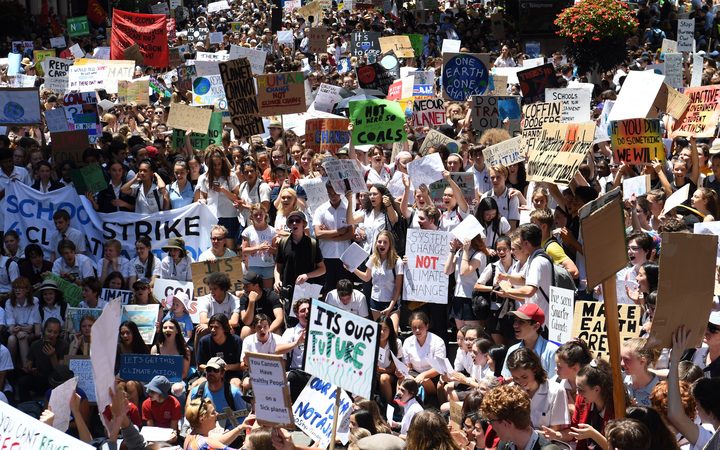Australian schools protest climate change
December 1, 2018 | Expert Insights

Thousands of Australian school students have urged greater action on climate change in protests across the country.
PM Morrison has brushed off the protests and called for “more learning, less activism” in schools.
Background
Climate change refers to a variation that occurs in the Earth’s climate. It is a variation in the statistical distribution of weather patterns when it lasts for an extended period or a short period of time. Global warming is the observed century-scale rise in the average temperature of the Earth's climate system and its related effects. Multiple studies published in peer-reviewed scientific journals show that 97 per cent or more of actively publishing climate scientists agree that climate-warming trends over the past century are incredibly likely to be caused due to human activities.
Climate change poses a fundamental threat to places, species and people’s livelihoods. Sea levels are rising, and oceans are becoming warmer. Longer, more intense droughts threaten crops, wildlife and freshwater supplies. From polar bears in the Arctic to marine turtles off the coast of Africa, our planet’s diversity of life is at risk from the changing climate.
Australia is one of the most vulnerable countries to climate change, due to its unique ecosystem and geographic location. Australia has a vast amount of natural resources and industries like mining which is detrimental to the environment. The country has pledged support to the Paris Agreement, however, there has been insufficient action taken towards achieving the targets agreed in the Accords.
Analysis
Australian students across the country refused to go to school as a form of protest against the government’s inaction on climate change. Australian PM Scott Morrison rebuked their plans for "activism" during school hours and insisted his government was tackling climate change.
Many students said his remarks had bolstered their resolve to protest.
Australia has committed to reducing its emissions by 26-28% on 2005 levels by 2030, under the Paris climate agreement. Mr Morrison most recently cited a renewable energy target, a clean energy purchasing fund, and a hydropower project as evidence of Australia's progress. He told parliament on Monday: "What we want is more learning in schools and less activism in schools."
Earlier this week, the UN said Australia and many nations were falling short of their emission commitments. Australia had made "no improvement" in its climate policy since last year, according to the emissions gap report. School Strike 4 Climate Action protests have been held in every state capital and 20 regional towns.
The idea started with Milou Albrect and Harriet O'Shea Carre, both 14, in the state of Victoria.
"The climate change emergency is something we have been thinking about for a long time," Harriet said.
"We wrote letters and did different things, but they never seemed to make a difference. Really, education, is our only power. By sacrificing that [on Friday], it's making a big point." Milou said: "We want our government to acknowledge publicly that climate change is a crisis. Stop digging coal, stop making new coal mines, switch to renewable energy."
The strikes aren’t contained to the major cities. In regional centres including Byron Bay and Castlemaine students are gathering and chanting, too.
The Auburn Girls High School student is one of the hundreds of students expected to skip school in Melbourne and Sydney to protest the government’s lack of climate change action today as part of the School Strike for Climate Action.
Students in other cities like Hobart held strikes earlier this week and in total, students from all capital cities and 20 regional areas were expected to head to their nearest Parliament House or MP’s office for the strike.
The event in Sydney has become so big that it had to be shifted from outside NSW Parliament House to Martin Place. Social media has played a pivotal role in orchestrating the nation-wide event as school children utilized popular media platforms such as Facebook and Twitter to coordinate the protest
Assessment
Our assessment is that the protests by school children are a vindication of the next generation’s eagerness to address the issue of climate change. Climate change will become existential challenge burden unless we can reduce the quantum of global warming.
Read more:








Comments